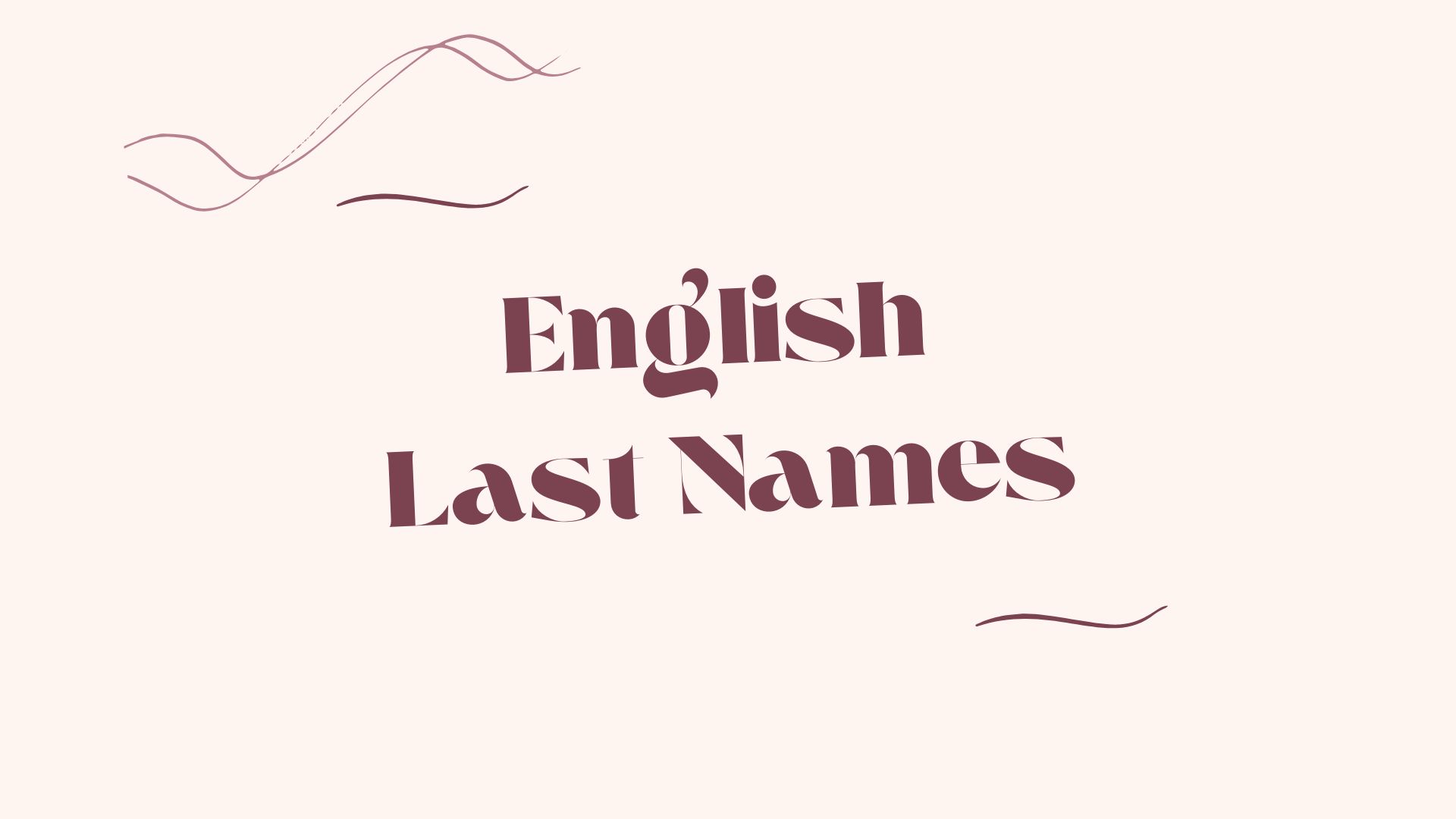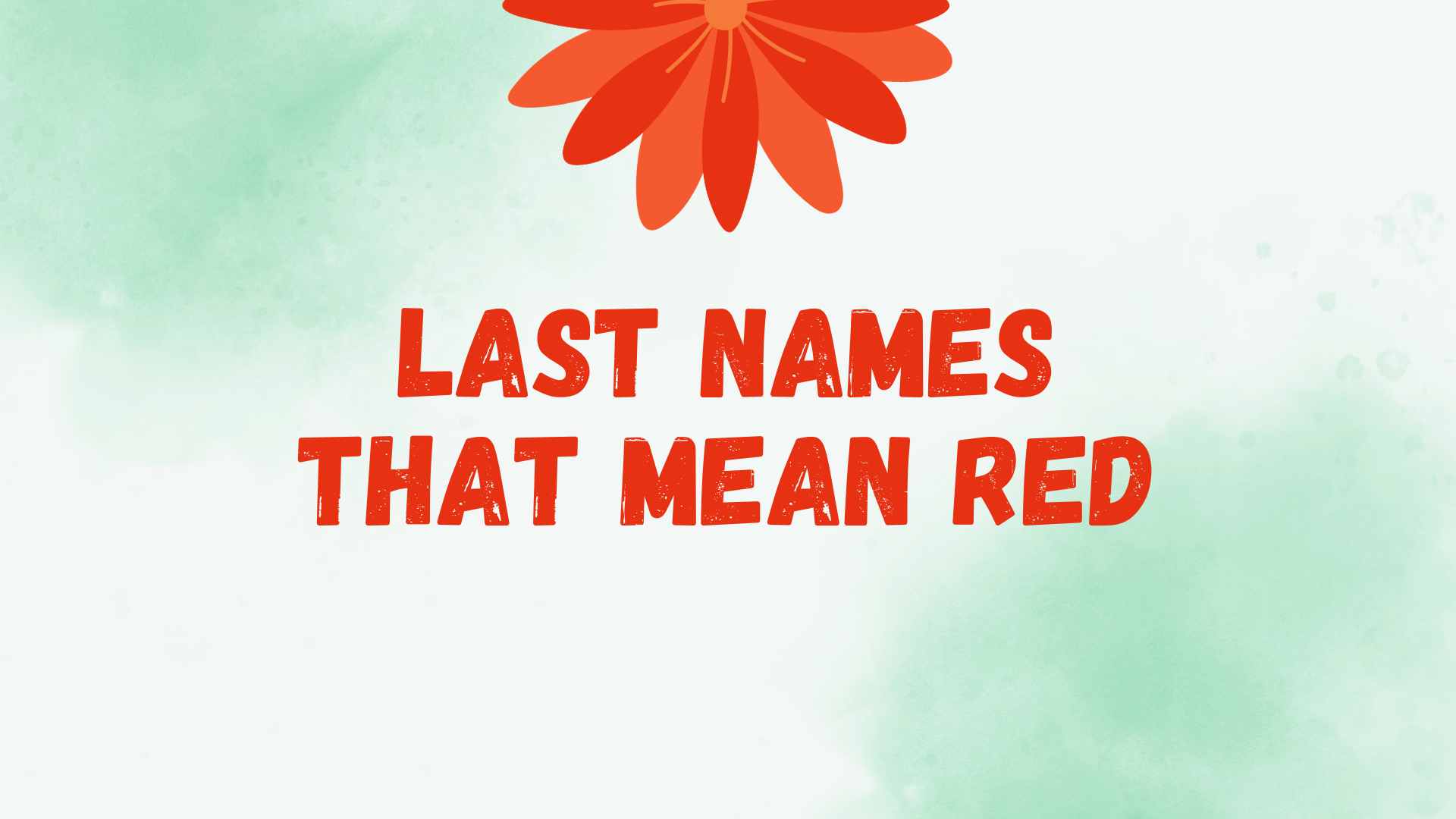Have you ever stopped to think about where your family name comes from? It's a rather interesting thought, isn't it? From the vast plains of Russia to the green hills of Ireland, and from the rugged coastline of Norway all the way down to the sunny shores of Greece, we've gathered some truly fascinating European family names, spanning the continent's entire breadth. It's almost as if each name holds a little piece of history, waiting to be discovered, you know?
Here, you'll find out what these names actually mean and where their stories began, which can really add something special to your own personal history. We're talking about more than 350 surnames from all across Europe, complete with their meanings, where they came from, and some quite captivating historical background. It’s a bit like opening a time capsule, really, seeing how these names have been passed down through the ages.
So, it turns out that when we consider the most frequently appearing family names in Europe, there are quite a lot of them. A group called Forebears, for instance, has information on something like 7,750,146 distinct surnames across the European landmass, and there are, on average, about 95 individuals for each one of those names. These European surnames, you see, are not just simple labels; rather, they carry a good deal of cultural background and some quite engaging stories that have been pulled from the many different parts of the continent and from the many different groups of people who live there.
- Shauna Robertson
- Jarnette Olsen
- Anna Faris Movies And Tv Shows
- Christopher French Movies And Tv Shows
- Sophia Pippen
Table of Contents
- What Stories Do European Last Names Tell?
- The Evolution of European Last Names
- How Did European Last Names Become So Common?
- The Cultural Significance of European Last Names
- Are There Patterns in European Last Names?
- Exploring Eastern European Last Names
- Where Can You Find Out More About European Last Names?
- Connecting with Your European Last Names
What Stories Do European Last Names Tell?
When you look closely at European last names, you quickly find that they are much more than just words people use to identify themselves. They actually hold quite a lot of cultural history and some really interesting tales that come from all sorts of different places across the continent and from the many different groups of people who live there. For example, if you consider a name like Abakumov, which has its beginnings in Russia, it actually means 'embrace' and comes from an old Hebrew word, 'Habakkuk,' which is, you know, a pretty cool origin for a family name. It's almost like each one is a tiny window into the past.
These European names, you see, have gone through many changes over hundreds of years. They've been shaped by various ways of life, different ways of speaking, and big events that happened a long time ago. It's really quite something to consider how much influence these factors had. They are, in some respects, living records of how societies have changed and moved over time. The way they sound, the way they are spelled, and the things they refer to can all give us a bit of a clue about the people who first carried them.
The Evolution of European Last Names
The journey of European last names through time is, well, quite a long and involved one. They didn't just appear overnight, you know? They have, in a way, grown and shifted over many, many centuries. Think about it: different groups of people moving from one place to another, new ways of speaking becoming popular, and big historical moments – like, say, a major conflict or a shift in how people lived – all played a part in shaping these names. It's almost like they are linguistic echoes of the past, still resonating today.
- Jada Pinkett Smith Movies And Tv Shows
- Joaquim Valente Age
- Max Bratman
- Georgia Groome
- Garrett Hedlund Movies And Tv Shows
What's really interesting is that these names often carry hints about where someone's family might have come from, or perhaps even what kind of work their ancestors used to do. It’s like a little puzzle, isn't it? You might find a name that points to a specific place, or one that suggests an old job, like someone who was a baker or a blacksmith. So, when you start looking into the most common last names in Europe, you begin to see how and why these names came to be, which is pretty neat, if you ask me. They really do tell a story.
How Did European Last Names Become So Common?
It’s a fair question, isn't it, how so many European last names became so widely shared? When we look at the names that many people share across the continent, it's clear there's a reason for their widespread presence. These family names are, quite literally, at the very heart of what makes up the history of each and every nation. They are, in a way, a really good example of that unwritten agreement that ties people together in a community, you know, that social contract. It’s what helps define who belongs where, in a sense.
So, when we take a close look at the names that appear most often, we can actually start to see patterns. These patterns might tell us about large movements of people, about the kinds of jobs that were very common a long time ago, or even about certain features of the land that gave people their names. For example, a name might have come from a characteristic of a person, like 'short' or 'strong,' or from where they lived, like 'by the river' or 'near the forest.' It's quite fascinating how these simple identifiers grew into the complex system we have today, really.
The Cultural Significance of European Last Names
The names that families carry in Europe, particularly, have been shaped over many hundreds of years by long stretches of history, by people moving from one place to another, and by changes in how society was organized. They are not just random words; they actually provide hints about where our family lines began and can give us some interesting insights into the past. It’s almost like they are little pieces of a very old map, showing us where our people have been, you know?
These names are, in some respects, more than just labels. They are part of a shared heritage, a connection to generations that came before us. They can tell us about the languages our ancestors spoke, the regions they inhabited, and even the social classes they belonged to. It's pretty cool to think about how a simple name can carry so much information, isn't it? They really do connect us to a much larger story, a story that spans centuries and crosses many borders.
Are There Patterns in European Last Names?
You might wonder if there are, like, certain common ways European last names came to be. And the answer is, yes, there are some pretty clear characteristics that pop up when you look at how these names have developed. For instance, a lot of names come from someone's father's name, which is called a patronymic. So, if someone's father was named Peter, their child might have taken a name that meant "son of Peter." This is a very common pattern in many European languages, actually.
Other names, you know, often describe where a person lived, like a town, a village, or even a particular landscape feature. So, someone living near a large tree might have gotten a name related to "tree." Then there are names that describe a person's job or trade, like "Miller" or "Smith," which are pretty obvious, aren't they? And some names came from nicknames, perhaps describing a physical trait or a personality quirk. It's quite a varied mix, but these categories cover a lot of ground, in a way.
Exploring Eastern European Last Names
Now, if we focus a little on Eastern European last names, we find some really distinct examples. We've mentioned Abakumov, which is Russian, but there are so many others, too. These names often have roots in Slavic languages, and they can be quite different from names you might find in, say, Western Europe. They often carry particular endings or sounds that are quite unique to that part of the world, you know?
The names from this region, like all European last names, are a product of their specific history, the languages spoken there, and the cultural movements that have shaped the area over time. They can tell us about religious influences, the presence of different ethnic groups, and even the political structures that were in place centuries ago. It's almost like each name is a small historical marker, pointing to a rich and varied past, which is pretty cool.
Where Can You Find Out More About European Last Names?
If you're interested in finding out more about European last names, there are many places to look. You can, for instance, find out about their meanings and where they originated, everything from very old, traditional ones to more modern ones, and from names that are quite rare to those that are very well-known. It’s really quite perfect if you're trying to learn more about your family's past or if you're just looking for some creative ideas for names, you know?
There are resources that can help you look at lists of the names that appear most often in most of the countries in Europe. This includes places like Armenia, Kosovo, and even some countries that are partly in Europe and partly somewhere else. While a few European countries might not be included in every list, you can still get a very good sense of the names that are most widely used across the continent. It’s a pretty comprehensive way to explore the topic, really.
Connecting with Your European Last Names
Connecting with your European last names can be a really meaningful experience. It’s a chance to feel a link to those who came before you, to understand a bit more about the paths they walked. These names are, in a way, like threads that connect us to a much larger story, a story that spans many generations and covers vast distances. They can, quite literally, provide clues about where our family lines began and can offer some insights into the lives our ancestors led. It's a rather personal kind of discovery, isn't it?
So, whether you're just curious about a name you've heard, or if you're doing some deep research into your own family's background, learning about these names is a rewarding thing to do. It helps us see that our own names are part of a much bigger picture, a long line of people and places that have shaped who we are today. It’s pretty amazing how much history can be held in just a few syllables, really.
We've looked at how names from Europe tell stories, from their meanings to their origins, and seen how they connect us to the past.
Related Resources:
Detail Author:
- Name : Brandt Hirthe
- Username : okiehn
- Email : amckenzie@yahoo.com
- Birthdate : 1977-11-02
- Address : 61014 Chance Harbors Suite 745 North Cotytown, MD 24348-6567
- Phone : 567.648.7038
- Company : Bergstrom, Smitham and Flatley
- Job : Engineering Teacher
- Bio : Quia nam possimus asperiores voluptates ipsum laudantium. Ab qui sed illo odio. Et officia qui rerum id mollitia enim cumque cupiditate. Ullam aut quis consequatur et.
Socials
linkedin:
- url : https://linkedin.com/in/hazelkeebler
- username : hazelkeebler
- bio : Et rerum saepe veniam at dolor optio.
- followers : 2488
- following : 416
facebook:
- url : https://facebook.com/keeblerh
- username : keeblerh
- bio : Et est ut eos nisi ratione. Sit quis consequatur velit dolores repudiandae.
- followers : 595
- following : 1443


